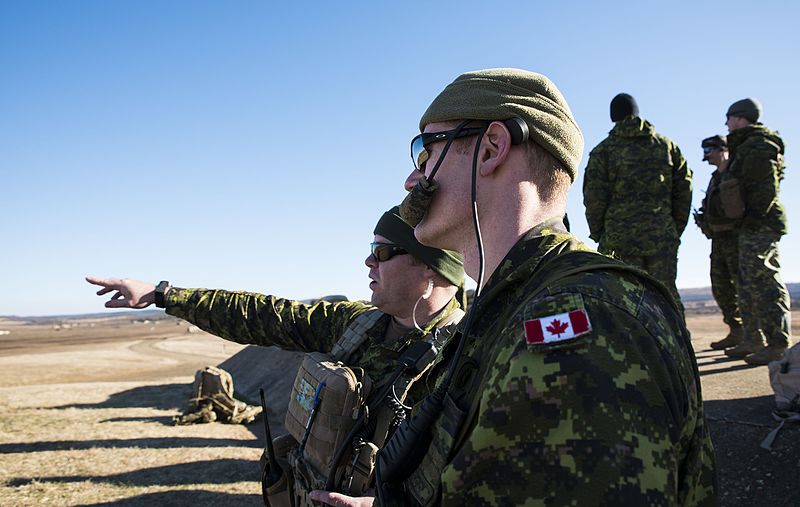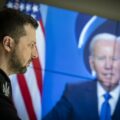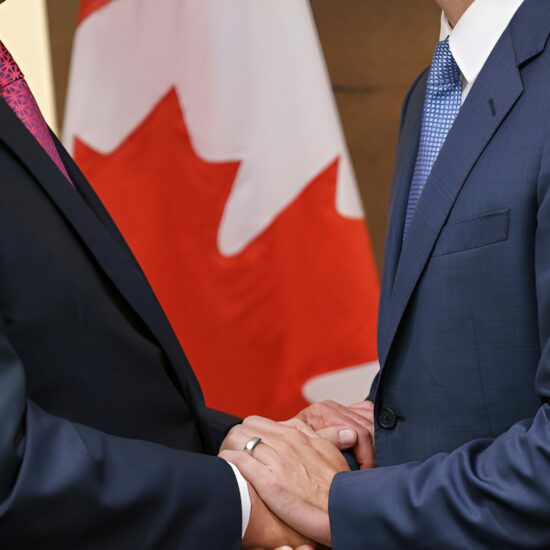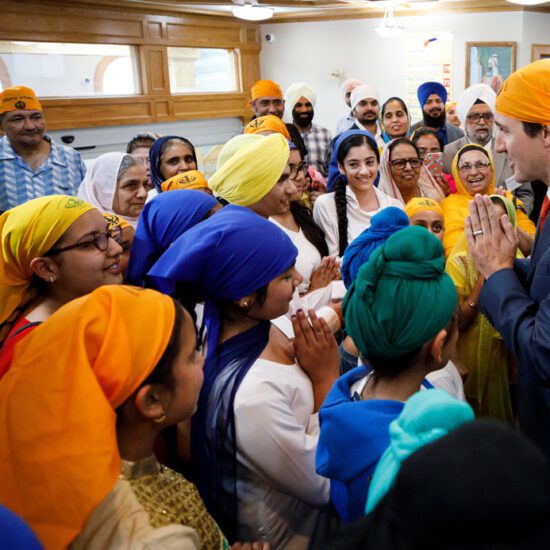
Image credit: Senior Airman Cody Martin
By Ross Fetterly
The challenging nature of integrating officers from different countries in coalition and international support missions highlights the need for Ottawa to allocate additional resources to the Canadian military to develop increased capacity for providing training to partner nations that do not currently offer such training themselves. International and coalition support operations operate optimally with trained and experienced military officers and some civilian experts. The present and evolving international security environment requires military officers globally to be better educated and more capable of operating in multi-national peace support and coalition operations.
This highlights the need for the Canadian government to consider various options to assist resource-constrained governments that want to provide staff officers to coalition military headquarters, but which require additional training for effective integration of the assigned officers. When deployed, officers learn from each other, notwithstanding their country of origin. Given the relatively limited time in which military personnel are generally deployed in international and coalition operations, having a common understanding and knowledge of how international military headquarters operate prior to deployment is essential for all personnel.
While the Department of National Defence (DND) provides three different UN-related training courses (for foreign logistics officers, staff officers, or military experts on UN Missions), NATO-led international missions, such as Afghanistan, are different as they require mission specific training for non-NATO staff officers to work in various headquarters. The recent Federal budget prioritized emergency foreign aid over long-term assistance. Establishing a designated DND program to streamline the integration of foreign military officers by training them to operate in international support operations headquarters is a sensible investment that could be done at a modest cost whilst promoting best practices in defence.
Countries such as Canada, the United States, and many European nations provide specific national pre-deployment training for leaders and staff officers deploying to international and coalition support operations. This is not always the case (or an option) for other countries, due to capacity or funding limitations. The Canadian Armed Forces (CAF) are well positioned to provide this capacity internationally. The complexity of the international strategic environment increased significantly following the end of the Cold War, and the global geopolitical fault lines continue shifting today. As a middle power and an increasingly diverse country that benefits from a connected world based on the rule of law, Canada is well positioned to lead globally in providing this training.
The ongoing Canadian military mission in Ukraine, in support of existing training development and capacity-building efforts, is an example of an effective Canadian support mission designed specifically to support the needs of the host nation. This approach can also be applied to coalition or international support operations by building capacity in allied countries through mission-driven, pre-deployment training that would enhance staff integration.
Training Organization & Implementation
In recent years, Canada has run various courses on defence resource management in Ukraine, Kenya, Georgia, Indonesia, Mongolia, and Montenegro through the Military Training and Cooperation Program (MTCP) at the office of DND’s Assistant Deputy Minister (Policy). Training foreign officers to operate in international coalition and support operations is likely better suited to be managed by the Canadian Joint Operations Command (CJOC). As the Canadian military currently has approximately 2000 personnel deployed overseas on more than 20 different operations, the CJOC could recruit retired senior officers with experience in working in coalition headquarters on term contracts to plan course delivery schedules and conduct training in overseas locations. Such a measure would make an important contribution to international capacity in this area and promote defence diplomacy while having minimal impact on the serving officers.
Creating a small directorate within the CJOC that is responsible for the development, planning, and delivery of military training course material that is staffed with Canadian military Training Development Officers (TDOs) and contracted retired military officers with record of service in international or coalition headquarters would ensure that the initiative to train partner nations will have minimal impact on current departmental capacity. The TDOs would oversee the quality control of training, including shaping the development, management, and provision of the training courses, and the educational resources used in training. The training package could include an e-learning package that would be sent to the host nation in advance to allow the students to do prior reading and preparation in order to reduce the timeframe for on-site course delivery.
With their wide range of backgrounds, this diverse group of experienced retired military officers could plan course delivery schedules under an established framework and conduct training in overseas locations. Military attachés at the Canadian embassies in the countries that would benefit from such training would coordinate with the host nations’ armed forces headquarters to schedule training, as required, for officers deploying to coalition operation headquarters. Course development and training modules would include exercises and simulation to support the training of military officers and support staff to operate in international and coalition support operations headquarters and would be tailored to the specific circumstances of the relevant theatre of operations. The nature of evolving international security challenges and the skillsets needed in international and coalition support missions highlights the need to sustain sources of stable long-term Federal funding to contribute to capacity-building in these missions through Canadian training programs designed for the changing nature of trans-national conflicts.
Conclusion
Canada is a middle power with a history of providing development, military training, and other assistance to countries of strategic interest. It would be a favoured choice for many nations, seeking support to expand their knowledge and capacity through learning leading military headquarters staff officer practices and then to apply those practices in an international military headquarters engaged in coalition or support operations.
The development of training programs through a collaboration of the DND and the CAF and their subsequent delivery to support capacity-building in countries that are willing partners but lack the capacity to develop that expertise in the number of military personnel required is a niche skillset that Canada can provide globally. Through such international capacity-building efforts to support partner nations in Africa, Asia, and both Central and South America to better integrate their forces with multi-national military headquarters, Canada could advance its national and strategic interests while elevating its global standing as a leader in defence diplomacy. More importantly, it illustrates the type of comparative advantage Ottawa possesses and the leadership role Canada can play globally to support international peace and security.
Ross Fetterly is a defence practitioner and academic with over 34 years’ experience in the Canadian military and has a PhD from the Royal Military College of Canada. He served for a year in the United Nations Disengagement and Observer Force as the Deputy Commander of the Canadian Contingent and was responsible for the UN Logistics Battalion in 2000-01, and later served in the leadership team of the NATO Kandahar Airfield Base Commander, as the Director of Finance, Procurement and Contracting in 2008. After retiring in 2017, as the Royal Canadian Air Force Comptroller and Business Planner, he has taught internationally at staff colleges and defence universities in Eastern Europe, Central and South America, Africa and Asia. An Adjunct Professor at the Royal Military College of Canada, he has been teaching graduate students for the past decade.










